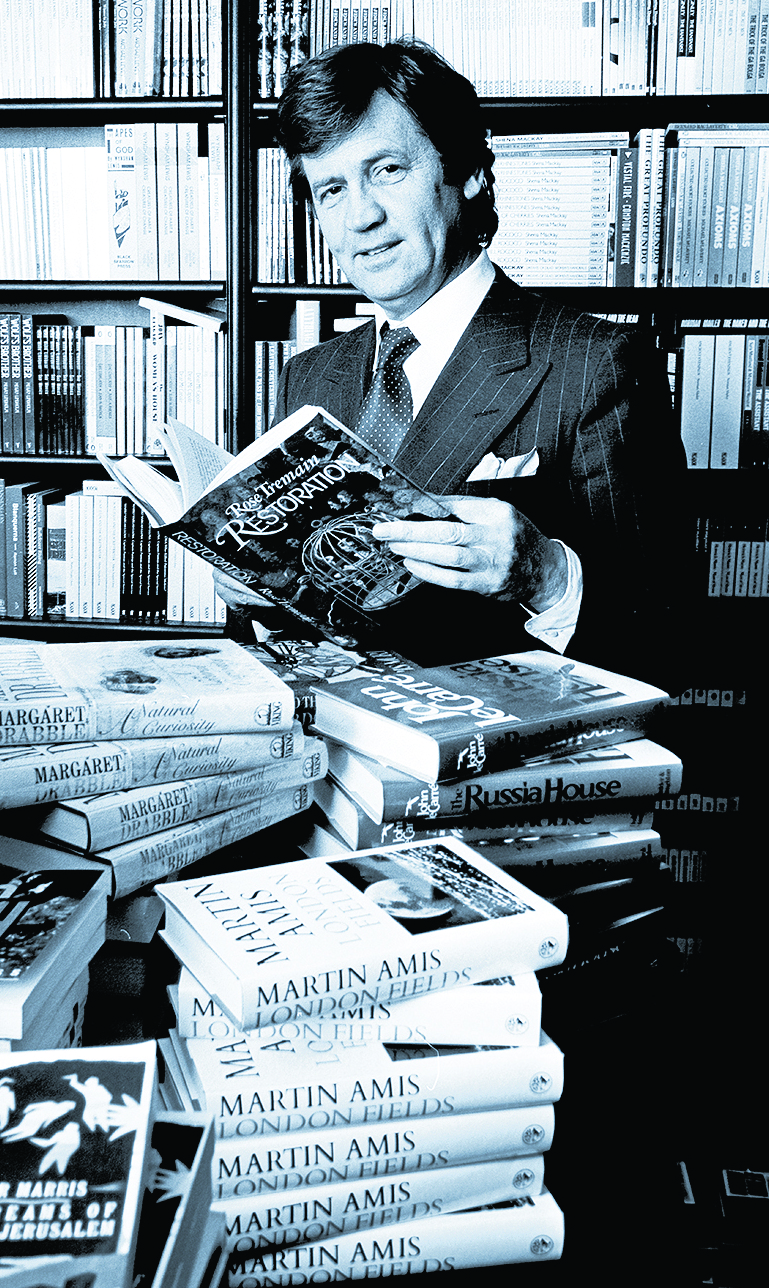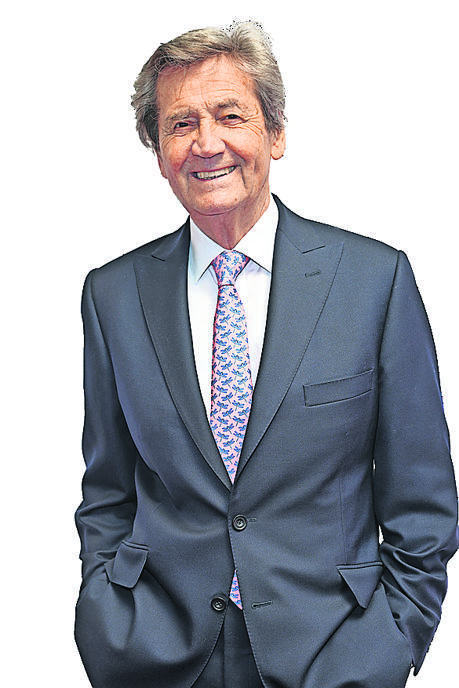
Melvyn Bragg has never believed in dumbing down: in his 60-year career in broadcasting he has neither done it nor thought audiences wanted or needed it (Andrew Billen writes).
When he launched a BBC television book series, critics sneered that it only featured paperbacks. Bragg responded that they had the same content as hardbacks, and were simply cheaper. When he moved to ITV to create The South Bank Show they said he was treating Paul McCartney as if he were Franz Schubert. But programme one was the Beatle and programme three Herbert von Karajan, the principal conductor of the Berlin Philharmonic.
With In Our Time, however, Lord Bragg surpassed himself. Forced off Start the Week, his previous Radio 4 perch, for being elevated to a Labour peerage and therefore partisan, he took over what was considered the impossible to get right Thursday void between Today and Woman’s Hour. Bragg made his programme almost deliberately antipopulist. Three academics would discuss for 45 minutes a subject that was neither topical nor controversial — and the more inaccessible the better, or so it sometimes felt. It was a huge success, a podcast in all but name before there were podcasts, and a cult with a couple of million members.
It was everywhere. Dinner parties found its latest episodes their main point of discussion, guests scoring points in their own minds for boasting of their intense interest in, say, mathematics and Platonism. A friend emigrated and told me it was what she most missed about Britain; I told her every episode was on BBC Sounds.
For the big-brained guests it was not always an easy gig. Bragg was evidently much less impressed by professors than creators, and could be terse. An academic might ask to be permitted to make an additional point; he’d say no. The boffins were not allowed to bring in notes on the grounds they might rustle. Bragg, heavily briefed by his research team, was allowed his. But oh the joy when the programme went well. “I enjoyed that,” he’d say. Every once in a while.
On another Radio 4 programme he once scrutinised Matthew Arnold’s Culture and Anarchy in which Arnold insisted that culture sought to make all men live in “sweetness and light”. Bragg’s strange show was not always quite that, but if anyone ever asked whether it was not time to abolish the BBC, you could give a three-word answer: In. Our. Time. Thank you Melvyn. We enjoyed that

Melvyn Bragg has stepped down from presenting the BBC Radio 4 series In Our Time after more than 1,000 episodes.
The 85-year-old broadcaster has presented every edition of the show since it launched in 1998, steering in-depth conversations with academics about a wide range of topics from the age of the universe to Zenobia, Queen of the Palmyrene empire.
His final episode aired in July and was titled Civility: Talking With Those Who Disagree With You as guests from the University of Oxford and University of Sheffield opined on the skill required for people with opposing views to discuss topics that really mattered to them without falling out.
Lord Bragg, who started The South Bank Show in 1977, will “continue to be a friend” to the BBC and has a new series planned with the broadcaster, which will air next year.
He said that it had been a “great privilege and pleasure” to present In Our Time for more than a quarter of a century.
“For a programme with a wholly misleading title, which started from scratch with a six-month contract, it’s been quite a ride,” Bragg added. “I have worked with many extremely talented and helpful people inside the BBC as well as some of the greatest academics around the world.”
Earlier this year he told The Times that he continued to feel nervous about presenting the show — which explores the characters, events and discoveries that have shaped our world — despite his experience. “I want to get it right,” he said. “I mean, I’m going to say what I believe in, but you wonder, ‘Have I missed something out?’ or ‘Am I showing off?’ ”
Tim Davie, the BBC’s directorgeneral, said that the “gold standard” of Bragg’s broadcasting and interviewing was an inspiration for future generations.
“Melvyn’s passion for the arts, his intellectual curiosity and his unwavering commitment to public service broadcasting over the last 60-plus years have enriched the lives of millions,” Davie said.
“Through In Our Time on Radio 4 he has brought depth, insight and humanity to our airwaves every single week for more than a quarter of a century.”
Mohit Bakaya, the director of speech and controller of BBC Radio 4, said Bragg was “part of the heartbeat” of the station.
“His fierce intellect, coupled with a wonderful curiosity and extraordinary passion for knowledge marks him out as one of the broadcasting greats,” he said. “Though we will miss him on In Our Time, he leaves behind a unique legacy: the treasure trove of over 1,000 archive episodes, which are a wonderful resource for all those with a love of learning.”
To mark his departure, Radio 4 will air some of Bragg’s favourite episodes, supported by a curated selection on BBC Sounds chosen by some of the show’s most notable fans.
Episodes of In Our Time regularly appear among the BBC’s most listened to on-demand programmes and are one of its most popular podcasts among under-35s.
In Our Time will return on September 18 with a new host.
No comments:
Post a Comment